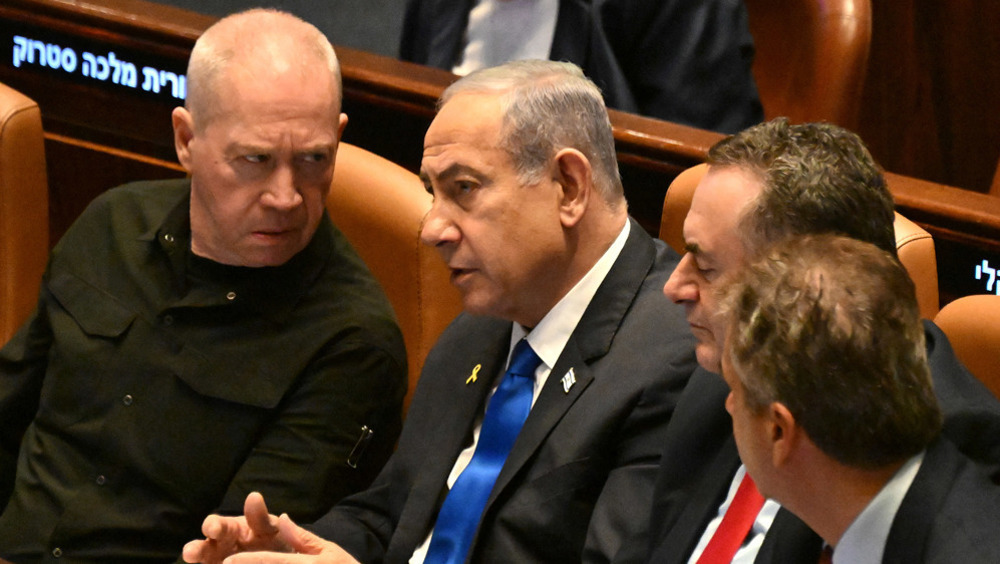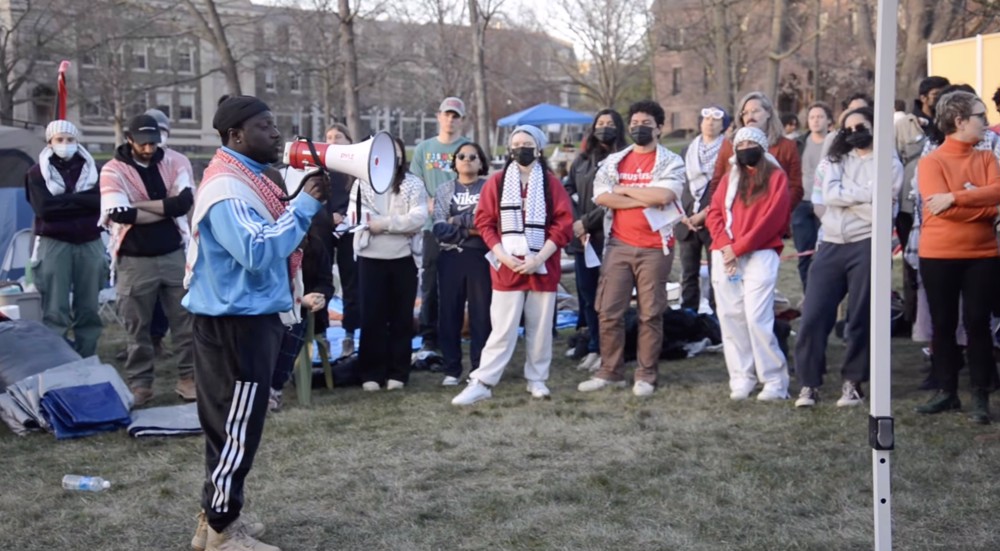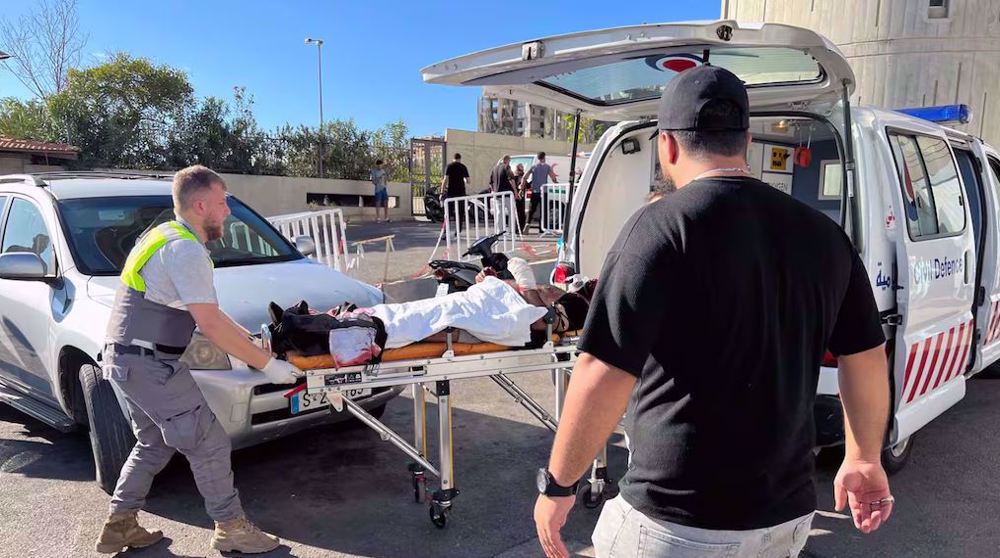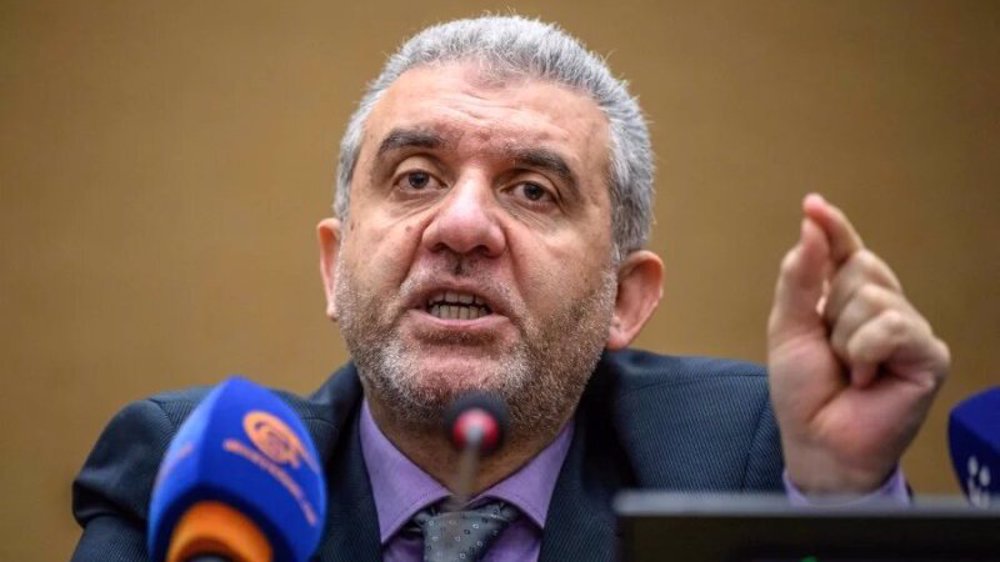Retired Mossad agents: Israel booby-trapped pagers years before Lebanon explosions
Two recently-retired, senior agents of Israel’s Mossad spy agency have revealed details on the September explosions of thousands of pagers and walkie-talkies belonging to Lebanon’s Hezbollah resistance movement, saying the work on the plots had begun years ago.
Speaking in an interview with 60 Minutes on CBS while masked and using a false name, Michael said Hezbollah bought more than 16,000 of the walkie-talkies, some of which were eventually used against them on September 18.
He noted that work on weaponizing the walkie-talkies had started more than a decade ago.
"The walkie-talkie was a weapon, just like a bullet or a missile or a mortar," Michael, who was among those spearheading the years-long plot, said, claiming that their batteries were made at a Mossad facility in Israel and included an explosive device.
Referring to the tactics adopted to "deceive" Hezbollah into buying the walkie-talkies, he said Israel set up shell companies to infiltrate the supply chain and the walkie-talkies were sold to Hezbollah at “a good price" that wasn’t too low so that Hezbollah would not become suspicious.
"We create a pretend world. We are a global production company: We write the screenplay, we're the directors, we're the producers, we're the main actors," Michael said, adding, "And the world is our stage."
Noting that the walkie-talkies were designed to go into the chest pocket of a tactical vest for soldiers during battles, Gabriel, another former Mossad agent, told 60 Minutes while masked and using a false name that Mossad in 2022 began development on booby-trapped pagers that could be used by members of Hezbollah at all times.
He added that Mossad used shell companies, including one in Hungary, to dupe the Taiwan-based Gold Apollo, from which Hezbollah was buying pagers, into working with it. The spy agency fully manufactured the pagers and had a licensing partnership with Gold Apollo.
Mossad also used fake ads on YouTube and fake online testimonials to promote the “heavy” pagers.
Gabriel noted that the advertising campaign claimed that the pagers "became the best product in the beeper area in the world."
"When they are buying from us, they have zero clue that they are buying from the Mossad. We make like the 'Truman Show,' everything is controlled by us behind the scene," Gabriel said.
Mossad even hired the Gold Apollo saleswoman Hezbollah was used to working with, who was unaware she was working with Mossad, according to Gabriel, who claimed the saleswoman had offered the resistance movement the first batch of pagers as an upgrade, free of charge.
According to the report, Mossad head Dadi Barnea gave the go-ahead to activate the sleeping bombs, amid hints Hezbollah might be getting suspicious of the pagers, triggering the September 17 blasts.
The following day, Mossad activated the walkie-talkies that had been dormant for a decade, and some of them went off at the funerals of those killed in the pagers explosions.
About 30 people were reportedly killed, including children, and around 3,000 others injured in the two attacks that came as part of the Israeli regime’s deadly aggression against the country.
Michael claimed that new similar plots are being hatched.
"We can't use the pagers again because we already did that. We've already moved on to the next thing. And they'll have to keep on trying to guess what the next thing is."

Hind Rajab Foundation to file legal action ahead of Netanyahu’s planned trip to Hungary

Palestinian teenager dies in Israel's jail after being held 6 months without charge

Pro-Palestinian student leaves US amid deportation threats
VIDEO | Press TV's news headlines
Iran condemns Israel’s continued aggression against Lebanon
VIDEO | Iran Islamic Republic day
Yemeni forces attack US aircraft carrier with cruise missiles, drones
Germany set to deport four foreign pro-Palestine protesters
VIDEO | No more bakeries working in Gaza as Israeli blockade shuts down all entries to territory
Hind Rajab Foundation to file legal action ahead of Netanyahu’s planned trip to Hungary
VIDEO | Iran marks Islamic Republic anniversary









 This makes it easy to access the Press TV website
This makes it easy to access the Press TV website